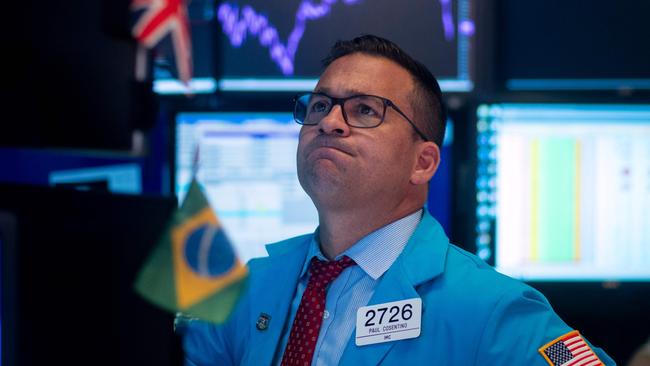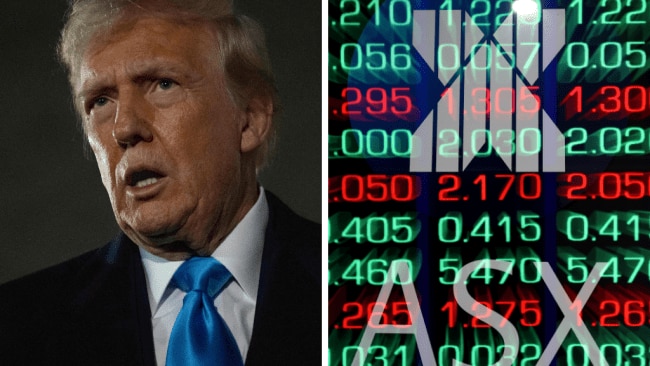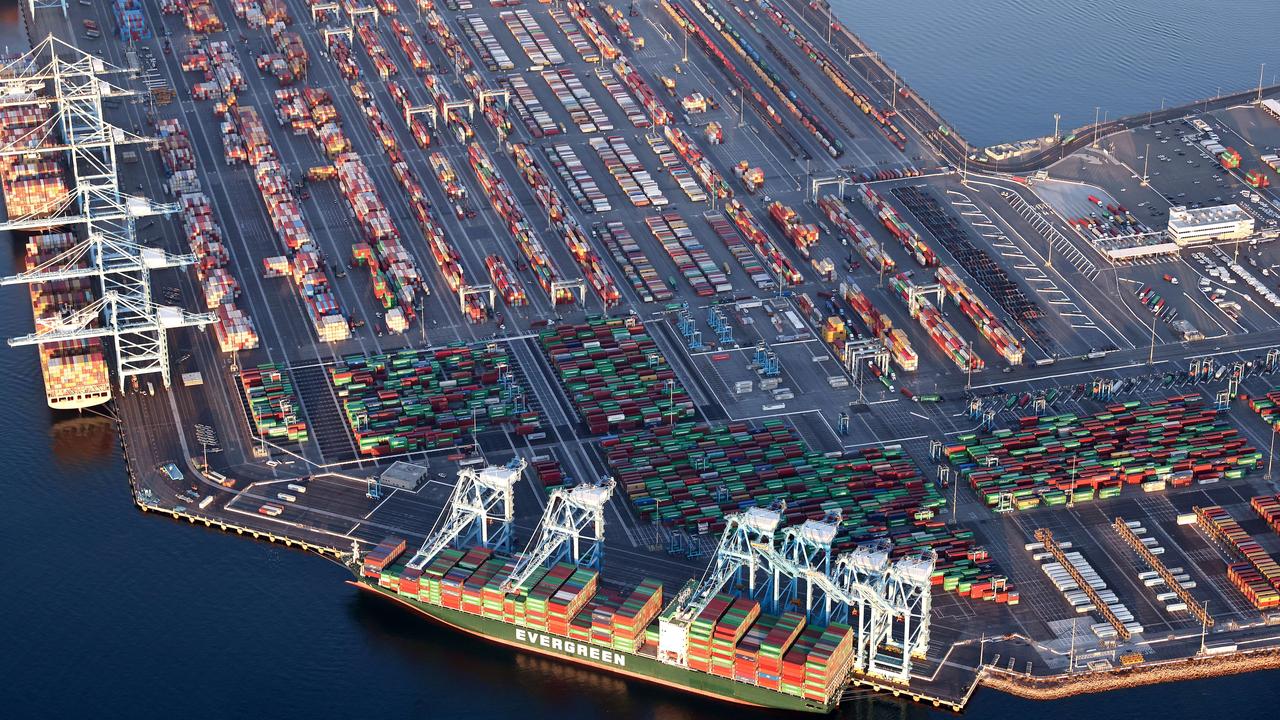China trade war fears send US markets tumbling
US markets tumbled overnight as fears grew that China is using its currency as a weapon in its fight with America.

Wall Street’s major indexes have tumbled, with the benchmark S&P 500 dropping about 3 per cent, as a fall in the yuan following US President Donald Trump’s vow to impose additional tariffs on Chinese goods sparked fears of a further escalation of the US-China trade war.
The Dow Jones Industrial Average fell 767.27 points, or 2.9 per cent, to 25,717.74, the S&P 500 lost 87.31 points, or 2.98 per cent, to 2,844.74, and the Nasdaq Composite dropped 278.03 points, or 3.47 per cent, to 7,726.04.
China let its currency, the yuan, drop to its lowest level against the dollar in more than a decade, a move that Mr Trump railed against as “currency manipulation.” It followed his own tweets last week that threatened tariffs on about $US300 billion of Chinese goods, which would extend tariffs across almost all Chinese imports.
The escalations in the trade war between the world’s largest economies are rattling investors already unnerved about a slowing global economy, falling US corporate profits and possibly too-weak inflation.
“The Great China Trade Deal evaporated before our eyes last week and investors should stop hoping it back into existence,” Christopher Smart, head of the Barings Investments Institute, wrote in a report.
Losses were steep and worldwide as the sell-off that began Monday in Asia swept westward through Europe to the Americas. Investors in search of safety herded into US government bonds, which sent yields plunging lower. The yield on the 10-year Treasury note, which rises with expectations of stronger economic growth and inflation, fell to its lowest level since Trump’s 2016 election energised markets, down to 1.74 per cent from 1.86 per cent late Friday. The yield on the two-year note sank to 1.58 per cent from 1.71 per cent a day earlier. Both are unusually large moves.
Of course, the US economy is still growing, the unemployment rate remains close to its healthiest level in nearly half a century and US stock indexes set record highs just over a week ago. But the escalating trade tensions and disappointment that the Federal Reserve has not committed to a lengthy series of interest-rate cuts have sent the S&P 500 on a losing streak set to hit its sixth day, which would be its longest since October.
China is intent on continuing to receive the hundreds of Billions of Dollars they have been taking from the U.S. with unfair trade practices and currency manipulation. So one-sided, it should have been stopped many years ago!
— Donald J. Trump (@realDonaldTrump) August 5, 2019
“A recession is still unlikely, but the probability of it is higher, still at less than 20 per cent,” said Nate Thooft, head of global asset allocation at Manulife Investment Management. The biggest threat coming out of the past week, he said, is that all the uncertainty about trade will scare CEOs and shoppers away from spending. That would threaten the expected ramp up in growth that economists have been expecting to see later this year.
A weaker yuan gives Chinese manufacturers a boost by making their products cheaper on worldwide markets for buyers using dollars or other currencies. That hurts US manufacturers, which have already been hit by the slowing global economy. It also adds more downward pressure on inflation,which some economists worry may be edging toward too weak. In the worst case, falling prices encourage people and companies to hold off on buying things, which starts a vicious cycle of less and less economic activity.
The US has long complained about the weakness of China’s currency, and Monday’s drop brought the yuan past a level that traders saw as an important psychological benchmark, at seven per $1. Analysts were mixed, though, on whether the move was a result of China weaponising the yuan or merely a reflection of its own slowing economy and the painful effects of tariffs. The latest round of tariffs threatened by Trump would much more directly hit US consumers buying clothes and electronics made in China. Earlier tariffs more heavily affected businesses, which have already pulled back on their investment given all the uncertainties about trade and the global economy.
Reuters, AP



